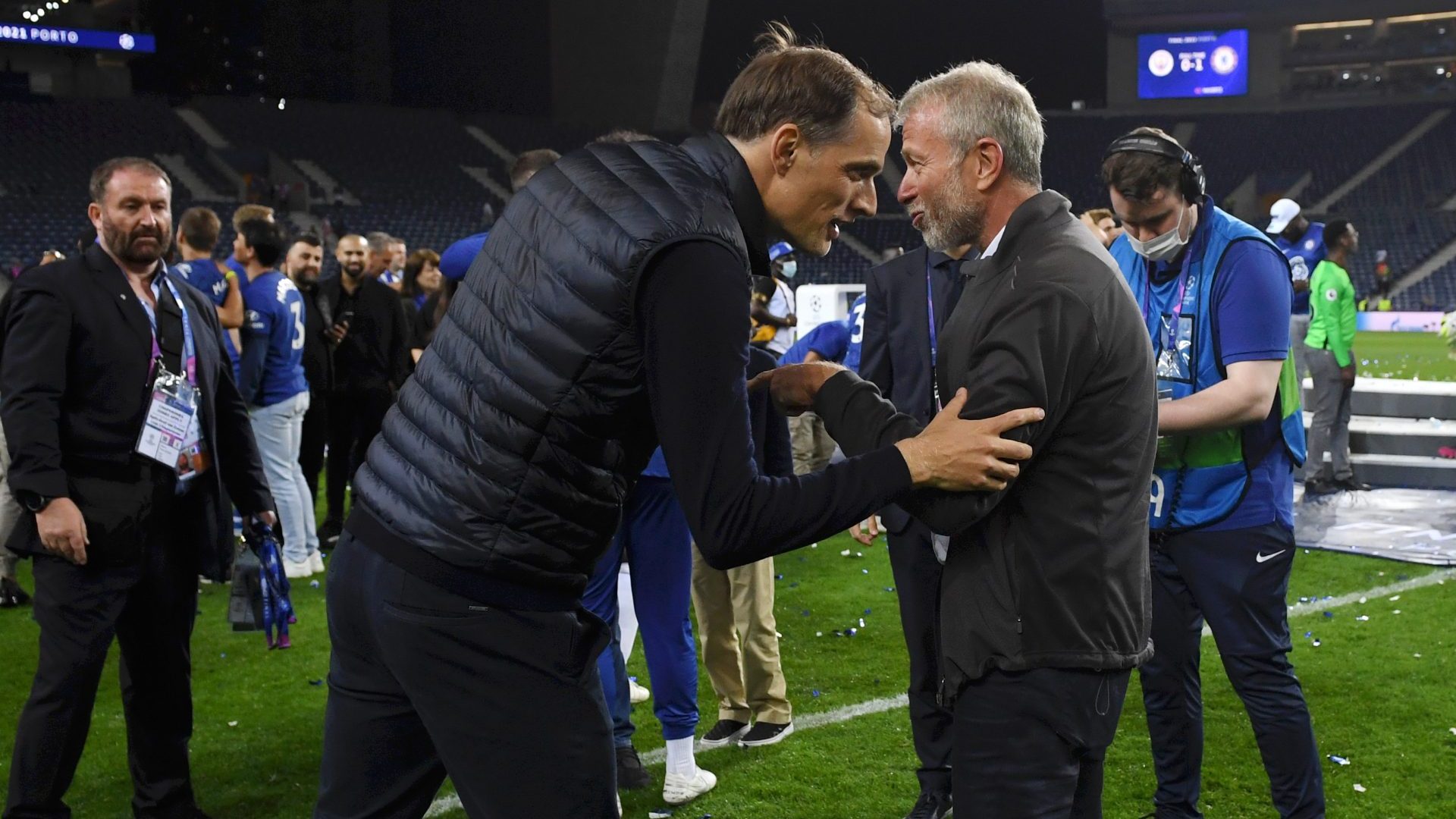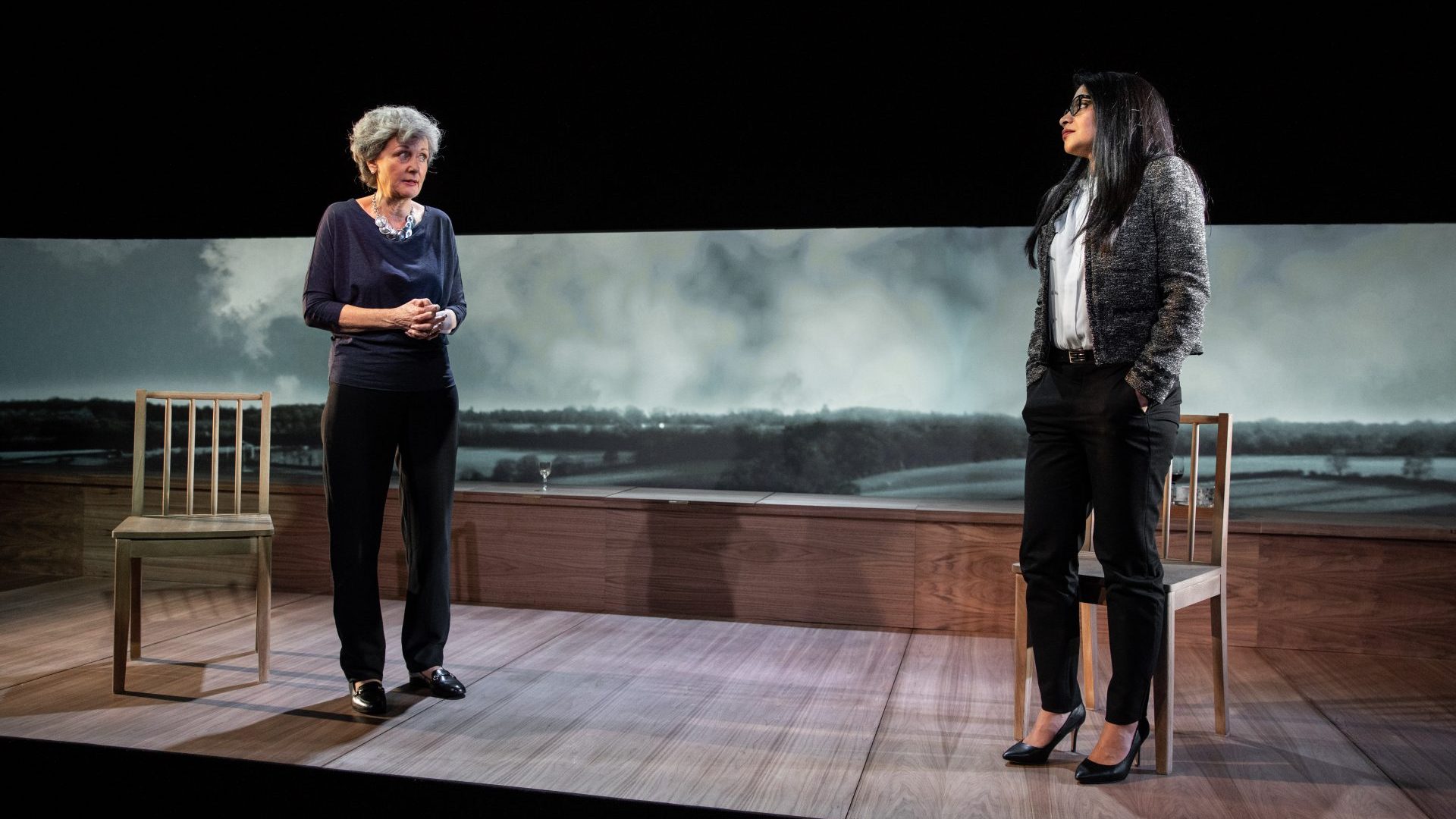Back in Thomas Tuchel’s student days, when he served pints at the Radio Bar in Stuttgart, he may have allowed himself to fantasise about one day in the future when he would earn millions winning the biggest trophies in football. That he would do so for an owner closely associated with probably the most reviled figure since Hitler would not have been part of the dream.
Yet that is how it has turned out, and last week the Chelsea manager found himself faced with the consequences of working for Roman Abramovich.
Questioned again and again about the invasion of Ukraine, about the club’s future after its oligarch owner placed it into stewardship and up for sale, Tuchel finally broke. “Listen, listen, listen, you have to stop, I’m not a politician,” he said. “You have to stop, honestly, I can only repeat it and I feel
bad to repeat it because I’ve never experienced war.
“So even to talk about it I feel bad because I’m very privileged – I sit here in peace. I do the best I can but you have to stop asking me these questions because I have no answers for you.”
Tuchel is no ordinary manager and he was no ordinary barman. He was then a second division footballer earning pin money to help finance his business administration studies.
He had shown a talent for strategy at high school, where he helped design tactics for his volleyball team-mates. So it seemed like a natural progression when, after a knee injury truncated his football playing career, Tuchel set about filling the shoes of Ralf Rangnick and Jürgen Klopp.
That all three Germans now manage in England tells you where the money is. But while Rangnick and Klopp have American owners, Tuchel’s route to
riches has been more eclectic.
He left Borussia Dortmund (where he succeeded Klopp) after the fallout of a
terrorist bomb placed under the team bus on its way to a Champions League
home game. He spent two fractious years with the Qatar-owned Paris St Germain. And, after being sacked on Christmas Eve 2020 for speaking his mind, he landed the job as the 13th Chelsea manager in 19 years of Abramovich ownership.
Hans-Joachim Watzke, the Dortmund chief executive, described Tuchel as “a difficult person”. They disagreed on players bought and sold, and crucially over the club agreeing to play a Champions League match 24 hours after the terrorist bomb that injured one player, Marc Bartra, and traumatised the team.
The following year, Tuchel became PSG head coach and Kylian Mbappé joined him for a £148m transfer fee. With Mbappé on one wing, the £181m
Neymar on the other, Edinson Cavani at centre forward, and some of the world’s most costly players in all positions, Tuchel was in clover.
But this “difficult person” never had the final say on team affairs. That belongs to Leonardo, a former Brazilian international entrusted to run
the Qatar sovereign wealth fund club in Paris. The final goal is the Champions League, and after that no doubt the Fifa Club World Cup, which was what Chelsea won to complete Abramovich’s silverware set last month.
Tuchel was like a bird in a gilded cage. The Arab-Parisian club spends enormous riches, but is trapped in a football vortex. Tuchel was fired, as Antoine Kombouaré, Carlo Ancelotti, Laurent Blanc and Unai Emery were,
and Mauricio Pochettino will soon be, because they failed to land the Champions League.
Days after Tuchel said on German TV that he felt he was expected to be more
a politician than a manager, he got the call from Leonardo telling him he should respect the people above.
Goodbye Paris, hello Chelsea. Make that Chelski, because Tuchel knew he was trading one billionaire domain with strings attached for another.
And while Tuchel felt Abramovich’s embrace only on big, victorious nights abroad, he was in relative football heaven given the free hand he had to dictate the tactics on the field. That, like most football managers, is all that
he asks, even down to dropping the most expensive strikers, Timo Werner and Romelu Lukaku, who the owner had been persuaded to buy.
It’s a results game. So long as Tuchel delivered the Champions League and Club World Cup, the owner he barely knew would keep on paying.
Until now, when Chelsea’s future is uncertain and its manager finds himself asked questions about war and morality instead of tactics and injuries.
I don’t for one moment think Tuchel is a mercenary. He is too obsessed with performance, too demanding of himself, too much a stranger in his own household to his wife and daughters, to be doing what he does 24/7.
He is reasonable, courteous, and linguistically brilliant in front of the media. He gets players far, far more gifted than he was on the pitch, to strain every nerve and sinew to perform the tactics which make the sum of their parts a winning, if not always aesthetic, formula.
And now that Abramovich – who unlike most of Putin’s oligarchs dares to call this “the war in Ukraine” – is attempting to sell Chelsea, Tuchel says his wish is to stay at the club.
No one yet knows who, if any, of the suitors drawn to the Chelsea auction can actually pay Abramovich’s price. Among the candidates are property
magnate Nick Candy, Irish mixed martial arts protagonist Conor McGregor… and Muhsin Bayrak, another construction and investment billionaire said to enjoy strong ties to Recep Erdoğan, whose Justice and Development Party rules Turkey and who is also closely connected to Putin.
The Turks have a fanatical love for football. Just ask Mesut Özil or İlkay Gündoğan. Bayrak, however, might be less interested when he considers two
factors. One is that Abramovich never actually owned Stamford Bridge, where football has been played for well over a century. Getting permission to redevelop the site to 21st-century standards eluded him.
The other is that whoever follows the Russian is unlikely to measure up to his accumulation of trophies.




